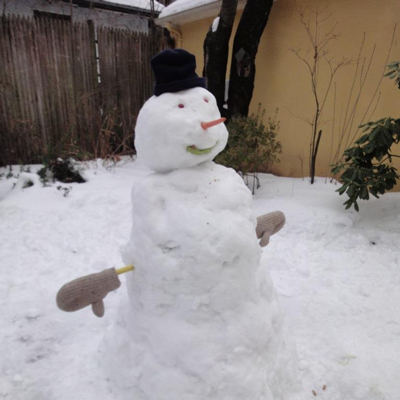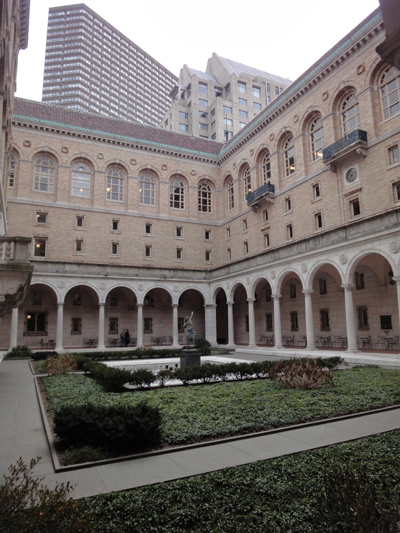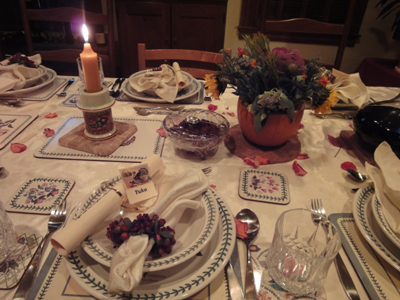
武田裕子
順天堂大学医学部
医学教育研究室 教授
Hinohara Fellowship 2013
2013年9月~2014年5月
プロフィール:
筑波大学を卒業し、大学院博士課程を修了してBeth Israel Hospitalで臨床研修を行いました。約5年間滞在し、帰国後は筑波大学呼吸器内科で後期研修を行い、以後、臨床に従事しながら卒前・卒後教育に携わっています。筑波大学附属病院卒後臨床研修部(1997-2000)、琉球大学医学部附属病院地域医療部(2000-2005)、東京大学医学教育国際協力研究センター(2005-2007)に勤務して地域医療教育や国際協力の経験を得ました。それらを活かして三重大学医学部地域医療学講座の運営にあたりました(2007-2010)。2010年に英国の大学院London School of Hygiene and Tropical Medicineに留学。修士課程修了後、King’s College London School of Medicineの地域医療教育部門で2年間研究に従事しました。その後、再度、Beth Israel Deaconess Medical Centerに日野原フェローとして迎えていただきました。2014年に帰国し、順天堂大学医学部医学教育研究室で主に卒前教育に従事し、訪問診療も行っています。専門は医学教育、地域医療、国際保健です。関心領域は健康格差とその社会的要因で、路上生活者への支援活動参加などを通して自らも勉強中です。
留学した期間
1990年4月~1994年11月(内科レジデンシ―/プライマリ・ケア研修/感染症科フェローシップ),
2013年9月~2014年5月(日野原フェローシップ)
留学を志望した動機や経緯
筑波大の学生の時に紀伊國献三先生のプライマリ・ケアの講義があり、そのような医療を目指したいと思いました。しかし、当時、総合診療部門のある大学は日本に2か所しかなく、紀伊國先生にご相談してBeth Israel Hospitalの病院長Dr. Rabkinと総合診療部門責任者のDr. Delbancoをご紹介いただきました。大学院の指導教員であった呼吸器内科の長谷川鎭雄教授にも留学を勧められ、学会発表の帰りにボストンに立ち寄り、面接を受けて研修させて頂くことになりました。
その25年後に英国に留学し、米国との違いに驚きました。健康の社会的決定要因という概念的枠組みを学びました。その視点から米国の医療をもう一度見てみたいと思い、研修医時代にお世話になった先生方に再度ご連絡をして受け入れていただきました。オバマ・ケア導入の年でもあり、米国社会と医療制度、健康との関連について考えたいと思いました。
留学までの準備や関連情報
最初の臨床留学では、医学部6年生の7月にFMGEMSのPart2(clinical)、大学院生のときにPart1(basic medical science)と英語(TOEFL)を受験しました。渡米の前年、資格更新のためにTOEFL再受験が必要で、NHKラジオ英会話と問題集でひたすら英語を勉強しました。日米医学医療交流財団(JANAMEF)から臨床留学のための奨学金助成をいただくことができ、それが先方の高い評価につながりました。なかなか留学に必要な書類が届かず、出発の日の朝に米国大使館に立ち寄ってビザを取得してから成田に向かいました(今では考えられません!)。友人がホームステイ先を紹介してくれたので、安心して渡米できました。
2回目の日野原フェローとしての留学のときは、ハーバードのウェブ・サイトでアパート探しをしました。なかなか決まらず苦労しましたが、結局、最初のホームステイ先のお宅に滞在することができました。今度は英国からの引っ越しに追われました。インターネットのおかげで、事前の留学相談も書類のやり取りも問題なく行えました。時代が変わったことを実感しました。
留学時の経験や活動
最初の臨床留学では、ひたすら鍛えられました。正規の研修医として採用され給与も支給していただいて、臨床の研鑽を積むことに集中できました。夫が3か月遅れで隣のChildren’s Hospitalに研究留学できたので、とても支えてもらいました。私は、英語が帰国生ほど堪能ではなかったためかなり苦労しましたが、3年経つころにはボストン訛りがあると言われるほどになりました。この留学のおかげで臨床医としての基礎を築くことができ、その後たくさんのチャンスにつながりました。自分が受けた教育や経験した教育システムを、学生・研修医たちに伝えたいと思ったのが、医学教育にかかわるきっかけです。
2度目の日野原フェローとしての留学では、健康格差を医学生・研修医がどのように認識し学んでいるか、様々な教育プグラムを見学する機会を得ました。また、日野原フェローシップの充実に向けて、プログラム責任者のDr. Christina WeeやDr. William Taylorとご相談して、フェローシップの要項を作成しました。詳細は、英文のレポートをご覧ください。
留学してよかったこと困難だったこと
医療も医学教育も、その国の成り立ちや歴史・文化が大きく影響していることを実感しました。また、多様性を尊重する社会でのびのびと過ごすことができ、互いに受け入れ合うことがあたりまえに感じられるようになりました。尊敬する先生方や友人と出会ってたくさんの刺激を受け、今も助けられています。家族との絆が深まりました。
留学もその後の歩みも、自分の力ではとても成し遂げられなかったことばかりです。期待して機会を与えて下さった先生方に感謝の気持ちでいっぱいです。同時に自分のcalling(召命)を覚えて、与えられたものを次の世代に渡して行かなくてはと強く思います。
後輩へのアドバイス
日野原フェローシップは、自分が学びたいこと、経験したいことを自ら見出してプログラムをつくっていく必要があります。待っていて与えられるものではないため、積極性と表現する力が求められます。留学前の1年間、準備期間としてスカイプ等で指導を受けられますので、自分の関心をはっきりと伝え、明確な目的意識をもって留学されることをお勧めします。留学中は、文化の薫り高く自然も豊かなニューイングランドでの生活を楽しまれてください。
Summary:
The aims of participating in the Hinohara Fellowship were as follows:
- To catch up with the advancement of primary care education at the BIDMC
- To identify the impact of social determinants of health in the US context and how it is taught at medical school and during residency
- Exploring further possibilities of the Hinohara Fellowship by experiencing the program

During my fellowship, I was able to participate in/observe various educational activities including seminars, conferences, preceptorship, outpatient clerkship and ward round. The residency program at BIDMC is now larger after the merger of the BI and the Deaconess compared to the one in early 1990’s. The structure of Primary Care Residency has become a separate program from the medical residency at BIDMC, while schedules of clinic rotation for medical residents have changed to accommodate other rotations. The Primary Care Residency has kept evolving and the new program including a “long block” was just implemented. The emergence of the hospitalist seemed to impact on not only clinical management of inpatients but also teaching on the ward. The residency program now has more teaching faculty who ensure learning activities among residents. I was impressed with the implementation of a “Teaching Block” and the pathway to prepare future clinician educators. Meeting with Dr. Russell Philips and Dr. Andy Ellner at the Center for Primary Care gave me the insight that clinical teaching has started to become more community-based with emphasis on interprofessional education.
Observing the Dr. Gilla Kriegel’s practice gave me the opportunities to learn about the cutting-edge medical informatics at Healthcare Associates including the Open Note. At the same time, Dr. Kriegel’s practice reminded me of the unchanged beauty of primary care medicine including comprehensiveness and enjoyment of providing continuity of care
In order to learn how SDH is taught in medical school, Dr. Taylor kindly introduced me to the distinguished faculty in the area such as Dr. Hugh Fulmer, Dr. Nancy Oriol, and Dr. David Jones to name a few. I was also introduced and allowed to attend seminars of medical anthropology organized by Professors Byron Good and Mary-Jo Good from December 2013 to May 2014. The discussions on social determinants occur more frequently among residents at the BIDMC. I also had a privilege to participate in the series of seminars on SDH at the Harvard Vanguard Residency Program, which was inspiring. I was impressed with the house officers’ deep understanding of the issues.
Being a Hinohara fellow also gave me an opportunity to gain a firsthand glimpse of research in general medicine and primary care under guidance of Dr. Christina Wee. I deeply understood the importance of research in promoting primary care medicine in Japan. It also gave me an opportunity to improve my presentation and writing skills. Innovative research in alternative medicine and placebos was truly eye-opening. Attending the course of scientific writing at HSPH, thanks to Dr. Roger Davis, has prepared me to guide graduate students at PhD course in the future.

All of those experiences gave me insights of possible programs for future Hinohara fellow. The “fellowship” with my co-fellows made the difference in my stay at BIDMC and I am especially grateful to Dr. Wei and Dr. Mafi. Dr. Taylor, Dr. Wee and I have discussed and developed the draft to recruit and prepare a Hinohara Fellow in the coming term. I am truly grateful to both Dr. Taylor and Dr. Wee for their constant support and warm encouragement during the entire period of my fellowship. The scheduled meeting was really helpful to maintain the activities and be productive. I also would like to take this opportunity to thank the administrative staff at the research section on Beacon Street for their kind support.
Publications:
- Takeda Y, Morio K, Snell L, Otaki J, Takahashi M, Kai I. Characteristic profiles among medical students and junior doctors with specific career preferences. BMC Medical Education 2013, 13: 125
http://www.biomedcentral.com/1472-6920/13/125 - Takeda Y. Relaying a torch to enlighten future generations – “Students are our treasure.” Medical Education (Japan) 2013, 44(6): 458-9 (in Japanese)
- Neighbour R, Takeda Y, Sawa N, Ii M, Takeuchi K, Kasai R, Kusaba T, Maruyama I. Exploring the future of family medicine in Japan: lessons learned from the British system. Journal of Japan Primary Care Association. 2013, 36(3): 198-206 (in Japanese)
- Takeda Y. Social well-being: what does this mean to us as a doctor? ACP Governor’s Newsletter for ACP Japan Chapter. March 2014 p 3- 10 (in Japanese)
- Takeda Y. [Opinion] How can we teach about plagiarism: practice in medical and graduate schools in the UK. Medical Education (Japan) 2014, 45(3): 220-21 (in Japanese)
- Takeda Y. Healthcare experiences among Japanese living in the UK: qualitative analysis. Annual Report of St. Luke Life Science Institute 2014, 17: 71-75 (in Japanese)